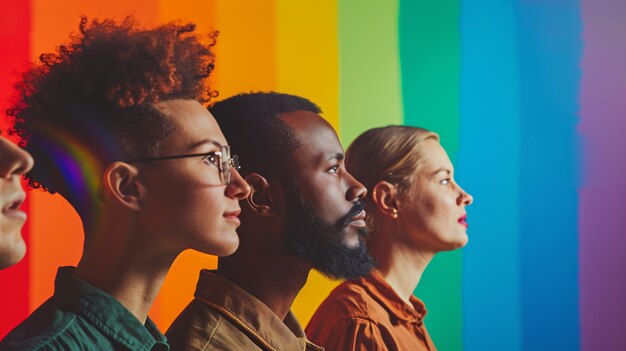
Sponsored article
In a world where cultures intertwine and global interactions increase, understanding the profound impact of culture on human behavior has become essential. Cultural frameworks dictate the way people think, interact, and respond to their environment, differing vastly across regions. This article delves into the intricate ways cultural norms, values, and diversity influence behavior, offering insights into why people act as they do and how these patterns shape societies. Join us in exploring this captivating intersection of culture and conduct.
Cultural norms play a pivotal role in shaping individual actions, as these unwritten rules and standards dictate what is considered acceptable behavior within a given society. These societal expectations serve as a framework within which people operate, influencing everything from daily interactions to significant life decisions. Individuals often internalize these cultural norms from a young age, learning through observation and reinforcement what behaviors are welcomed and which are frowned upon. Consequently, the desire to conform to these norms can lead individuals to modify their natural inclinations, prioritizing community acceptance over personal preferences. This harmonization process demonstrates the power of societal expectations in steering behavior, as individuals often act in ways that align with the collective values of their culture.
The influence of cultural norms on individual choices and actions can be seen across various aspects of life, from communication styles and social hierarchy adherence to gender roles and conflict resolution strategies. For instance, in cultures that emphasize collectivism, individuals might prioritize group harmony over personal gain, leading to behavior that supports the collective well-being. Conversely, in more individualistic cultures, personal achievement may take precedence, resulting in behavior that fosters independence and self-expression. This divergence in behavior underscores how varying cultural standards can significantly shape the way individuals act, interact, and perceive the world around them. Through understanding these cultural expectations, we can better appreciate the diverse expressions of human behavior and the complex interplay between society and the individual.
Cultural values play a pivotal role in shaping collective behavior, serving as the binding force that unites communities and fosters social cohesion. These shared beliefs and ideals act as a guiding compass for members of a community, encouraging actions that align with communal objectives and ethics. One of the most profound ways cultural values manifest is through rituals and traditions that perpetuate a sense of belonging and identity. For instance, religious ceremonies and national holidays not only celebrate shared history but also reinforce the cultural values that underpin collective identity.
Moreover, these cultural values are often reflected in communal practices that promote harmony and cooperation. Communities might engage in actions such as:
Such practices encourage behavior that is congruent with the community’s ideals, promoting a unified and cohesive social fabric. Through the shared understanding of cultural values, collective behavior emerges, guiding how individuals interact and collaborate within their societal framework.
Cultural diversity plays a pivotal role in shaping human behavior by enriching it with a plethora of perspectives and practices. The vast tapestry of cultural backgrounds introduces individuals to varied ways of thinking and approaching life’s challenges, which in turn fosters increased adaptability and resilience. These diverse cultural inputs encourage individuals to reevaluate their own preconceived notions and expand their understanding of the world, prompting a deeper empathy and appreciation for the complexity of human nature. Because of this, the impact of diversity on human behavior is profoundly positive, opening up avenues for personal growth and development that would otherwise remain unexplored.
Cross-cultural interactions further amplify these effects by laying the groundwork for innovation and creativity. When individuals from varied cultural backgrounds come together, their unique insights and experiences coalesce, resulting in novel solutions to problems and more effective collaboration. Embracing cultural diversity in professional settings leads to more dynamic and flexible work environments, where adaptability and innovation thrive. This not only enhances organizational success but also enriches personal lives, as individuals learn to appreciate the diverse tapestry of human experiences and the profound impact it has on human behavior.